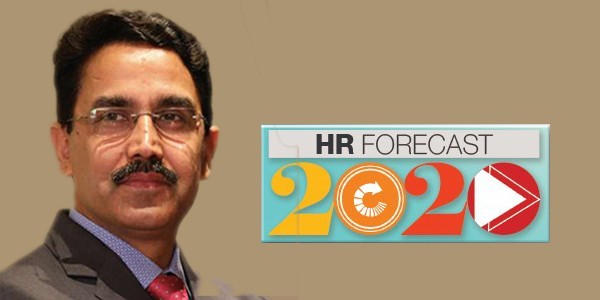Technology, data, employee experience: What’s high on agenda
All of them, and much more! Technology and data science have become part and parcel of life. Data science helps in making more accurate decisions, faster, and in a consistent manner.
One of the key imperatives, is to drive unique employee experience—using technology and data science— and by extension, customer experience. With millennials comprising a large employee base at the workplace, HR is challenged to redesign practices so they appeal to this digital-savvy population and create an engaging experience. This is now a hygiene.
I am very inspired by Jim Goodnight, CEO, SAS, who says “95 per cent of my assets drive out the gate every evening. Its my job to maintain a work environment that keeps those people coming back every morning”. Thus, employee experience, overall well-being, happiness and purposeful work constitute the critical elements of the HR agenda.
Here, communication plays a key role; and it is the leaders’ role to provide a connect to all employees, along with the organisational purpose. So, all employees feel connected with the purpose of existence of the organisation. For instance, at JK Tyre, employees are made aware of the impact they make on the lives of people. We remind them about the contributions they make — in moving people and goods. They help move kids to school, they help a woman move to a hospital to deliver a baby, they help deliver food and medicines to those in need. They facilitate the movement of the armed forces, assist in the transportation of goods from one place to another possible, and so on. Therefore, they are not just making and selling tyres, they are enhancing the quality of lives and making an impact on the lives of people.
The biggest challenge for HR in your sector
The biggest challenge for us is to drive the agenda of agility, customer centricity and transformation. This requires a shift of mindset, within the HR first—from activity to outcome, from transaction to value-add, and transformation.
Secondly, with three or four generations of employees working together at the workplace, designing programmes that enable inclusion and team work – will be the key remit of HR organisations. There is a lot of work that needs to be done here. Last but not the least, digital literacy needs to come under sharper focus in the HR function.
Internal equality and internal equity
For driving internal equity, we need to sensitise people and enable appreciation at the leadership level. The good news is, not only is internal equality focus being appreciated, but so is internal equity focus with respect to gender, background and cultural orientation, and so on. HR needs to continuously pay attention to this and play an important role in driving this change, even faster.
Digital recognition and virtual medals
Digital recognition is gaining ground, and in the future, it is only going to become bigger. The reason is that, not only do the digitally-savvy millennials require and appreciate digital recognition, even GenX and baby boomers are embracing this change. I see digital recognition growing in the future because technology is driving this change at a very rapid pace. For instance, many of us wake up to notifications on our smart phones and are keen to know how our posts have been perceived by the social media community.
Data deluge: More power to HR
Between data and gut feel, it’s not about EITHER/OR. It’s really about AND. You can’t sacrifice one over the other. Both are needed. Data sharpens the ability to make more accurate decisions, on the basis of past experiences and trends. However, not everything can be captured and described by data, for instance, emotions, aspirations, and feelings require the human touch.
Human judgment, intuition and gut cannot be replaced by data. Human ecosystems seek a wholesome package that includes both data and gut feel. While data analysis can be very insightful and empowering, overdoing it can also lead to analysis paralysis! What to analyse and how much, is a judgment as important as the analysis itself. After all, no organisation wants to spend too much time on trivia, and any analysis has to make sense! It must be able to answer the basic question, ‘So what?’
( This article first appeared in HRKatha print magazine)


